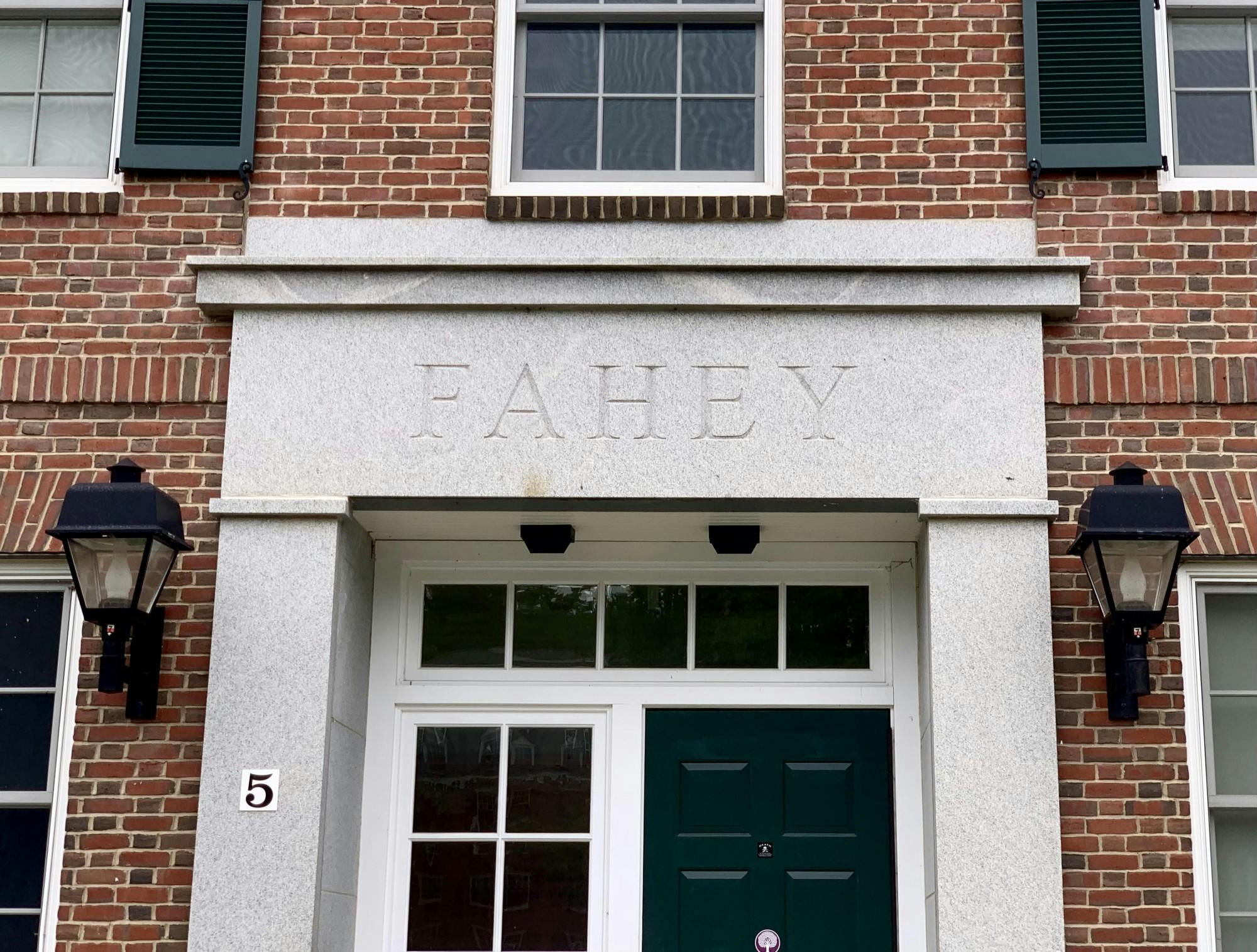Since Sep. 1, there have been 11 fire alarm activations in Fahey and McLane Halls this year, with six occurring over the course of winter term, according to Hanover deputy chief of police and fire marshal Michael Gilbert.
In an email statement to The Dartmouth, residential operations facilities manager Chris Johnson wrote that the first winter term activation was on Jan. 7, with the most recent being on Feb. 4.
In a Feb. 7 email sent to the residents of Fahey and McLane, Residential Operations addressed the building's recent fire alarm activations, stating that the “system is working as intended.”
According to Gilbert, all 11 activations were from smoke detectors within individual bedrooms across the building’s four floors.
“There’s really nothing that can be done,” Gilbert said. “The fire alarm system is doing what it’s designed [to do].”
Safety and Security director Keiselim Montás said that fire alarms are the most common calls to which Safety and Security responds.
“It’s a common occurrence, and it is something we take very seriously,” Montás said. “Every time that we get a fire alarm [activation], you get a combination of response[s] between Safety and Security, the College troubleshooters and the fire department.”
Montás added that it is important for students to evacuate the building each time the alarm activates. However, Fahey resident Hayden Welty ’23 said the frequency and timing of the alarms has become “pretty unacceptable”
“It’s always at very, very early hours in the morning, so I’ve been woken up anywhere from six to nine [a.m.], which is an earlier and more annoying alarm, so you are going to lose a few hours of sleep,” Welty said. “The other really annoying thing is that sometimes it goes off in the middle of the night.”
Gilbert said the number of activations in Fahey and McLane was “high” compared to other dorms on campus of a similar size. In the McLaughlin cluster, Topliff Hall and New Hampshire Hall, Gilbert said the number of fire alarm activations range from “zero to four to five” since Sep. 2022.
Johnson wrote that some of the activations have been triggered by “violations of the fire safety policies” — adding that an independent contractor will be coming on-site to check the system’s overall sensitivity and make any adjustments as needed.
Gilbert said that while inspectors will check the system’s sensitivity, smoke detectors cannot be altered because they are set to adhere to National Fire Protection Association standards.
“They are not able to make it more sensitive or less sensitive,” Gilbert said. “It comes manufactured like that, and they can’t really adjust that.”
Montás added that “we want [the detectors] to be sensitive.”
The location of the smoke detectors “can make a difference” in terms of the frequency of the activations, Gilbert said. He added that smoke detectors placed near kitchens or bathrooms may be more likely to be activated.
Over the fall and winter terms, each fire alarm activation has been traced to a known cause, save for one, which prompted the contractor’s visit.
None of the 11 activations were triggered by a system malfunction, but rather by student activity, according to Gilbert. Two activations were caused by students smoking in their rooms, one by the steam of a shower and the rest by the usage of either a hairdryer, curling iron or hairspray, he added.
“The number one thing that’s setting them off is either hairspray or [a] hairdryer,” Gilbert said. “That kind of surprised me.”
According to the College’s Fire Safety and Health Codes, hair products such as hairdryers and hairspray are not in violation of fire safety policy.
McLane resident Ellie McLaughlin ’25 said the detectors are often triggered by “something small [that is] not really an issue.”
“It feels like most of the time we have to evacuate, it’s not something that’s a real safety threat,” McLaughlin said.
West House executive board member Ravin Anderson ’24 described the evacuation process as “long” and disruptive to his life. He said the executive board has spoken with house professor Ryan Hickox about their concerns regarding the recent fire alarm activations, but “no one could really offer a solution.”
“I think Dartmouth’s response in general is very much like, ‘we are gonna follow policies and procedures at the expense of [our] students,’” Anderson said. “I think Dartmouth could do a better job talking to their students, but it seems like there’s a huge disconnect.”




